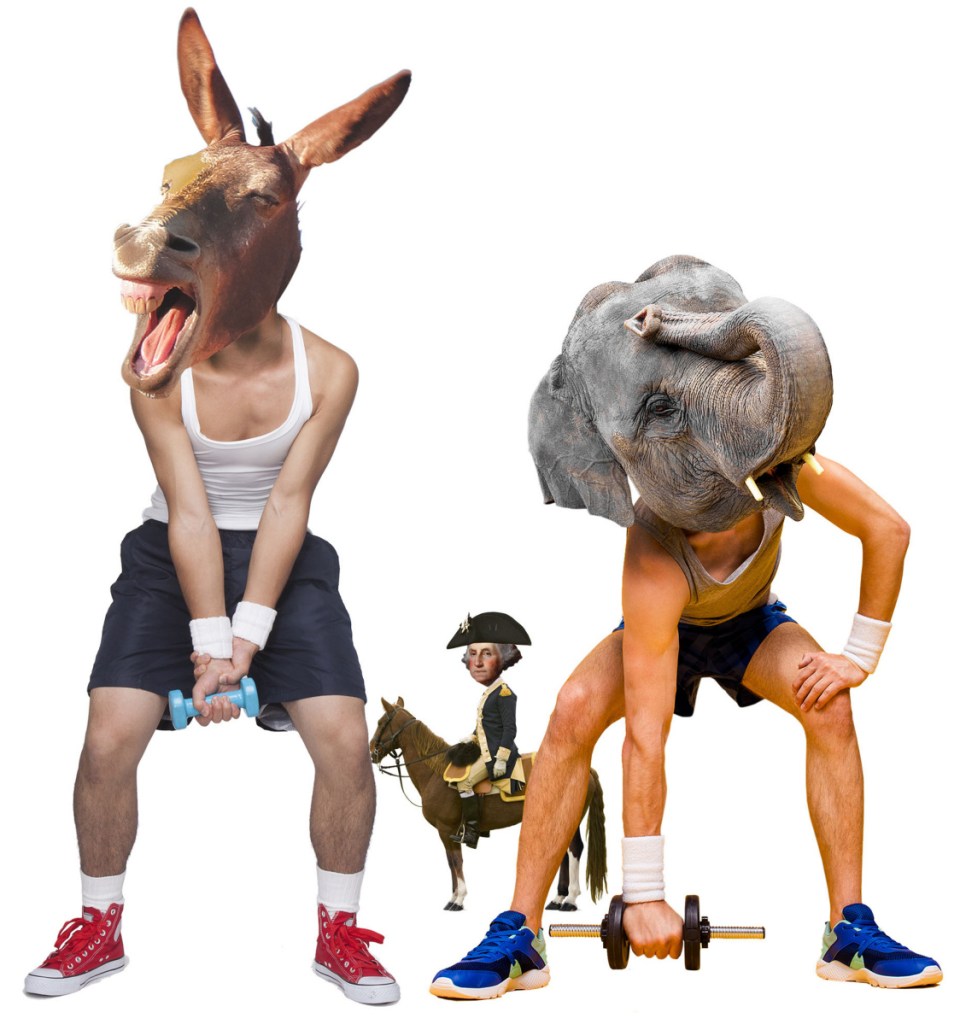Given the extreme polarization in the Senate as the final act of the Kavanaugh confirmation drama arrives, one might conclude that political parties have never been stronger. George Washington’s words in his farewell address strike a ringing chord in these bitter times. Warning against “the baneful effects of the spirit of party” (which, Washington admitted, “unfortunately, is inseparable from our nature”), the Father of his Country listed the bad effects of faction:
It “serves always to distract the public councils and enfeeble the public administration. It agitates the community with ill founded jealousies and false alarms, kindles the animosity of one part against another, foments occasionally riot and insurrection.” It even “opens the door to foreign influence and corruption,” Washington added presciently – centuries before Paul Manafort laundered his first Ukrainian hryvnia.
Yet could it be that we need stronger political parties rather than weaker ones? Political scientist Joseph Postell makes the case in an intriguing essay written for the Heritage Foundation.
Today’s gridlocked Congress and imperial presidency are the sour fruits of party decline, writes Postell, an assistant professor at the Colorado Springs campus of the University of Colorado. “The history of political parties reveals that they are the critical mediating institutions that make the American Constitution function well.”
Postell contrasts Washington’s lament with James Madison’s gradual realization that the constitutional system of checks and balances he created can’t operate without strong parties. Broad national coalitions force narrow factions and special-interest groups to moderate their demands and learn to compromise. Madison figured out that he and his fellow architects of the American government had been so frightened of mob rule in a democracy that they built a machine that would not go – and thus, paradoxically, a machine too weak to resist the tyranny of whichever small faction got its hands on executive power. Large national parties “would take the bite out of factions by incorporating them into broader movements,” Postell writes of what he calls “the Madisonian cure for the Madisonian disease.”
Robust political parties “translate majority will into public policy by focusing elections on policies rather than personalities,” Postell maintains. Today’s weakling parties, by contrast, are liable to be hijacked by celebrities, as any dismayed pre-Trump Republican conservative will attest. The current president’s approach to alliances, trade and spending all fly in the face of traditional Republican values, but the party establishment was too weak in 2016 to enforce even a shred of discipline.
You won’t read about Donald Trump in Postell’s paper – but you will find a nuanced discussion of Trump’s favorite precursor, Andrew Jackson. Like the current president, Jackson was a huge personality with a direct connection to his populist supporters. The flamboyant general rose to power in an era of weak parties and bitter divisions.
Enter Martin Van Buren, the hero of Postell’s paper. As a U.S. senator from New York, Van Buren eyed Jackson with alarm. “If Jackson were to win based on his personality, he would have considerable personal power once he attained office,” Postell writes. But if the maverick could be lassoed into Van Buren’s Democratic Party as its presidential nominee, “he would have to accommodate the different views of people within the party once in office.”
After Van Buren, the nation entered an 80-year period in which – with the notable exception of the Lincoln administration – presidents were weak, Congress was strong and the American political parties were at their zenith. Generations of Americans have been taught to revile the corrupt political machines that ruled the land from San Francisco to New York. But Postell reminds us of the good that was accomplished in the smoke-filled rooms: The bosses were pragmatic, and they knew how to make a deal. They knew how to get things done.
Strong parties “moderate politics by encouraging elected officials to bargain and compromise instead of engaging in endless conflict,” Postell maintains. “They reinforce the separation of powers by strengthening the legislative branch and checking the accumulation of power in the executive.”
Left unanswered, though, is the looming question: Having hollowed out the parties, how would we start to rebuild them? If anything, the trend today is toward weaker parties, not stronger ones. As Trump demonstrated in 2016, the power of social media allows candidates to connect directly with voters – especially famous candidates with big personalities. The Republican Party establishment was no match for a candidate with a direct line to the voters; Republican leaders have had no choice but to hop aboard the personality bus or be flattened beneath its wheels.
“Great parties make American politics more accountable by letting the people decide between competing visions of good government rather than individual candidates and their personalities,” Postell concludes. There’s something attractive in these crazy times about the idea of more vision and less personality. But as the song says: You don’t know what you’ve got till it’s gone.
— The Washington Post
Send questions/comments to the editors.


